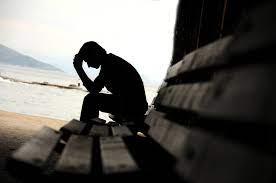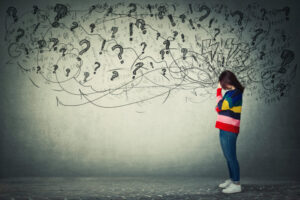
By Victory Abanjo
Depression is a mood disorder that causes a persistent feeling of sadness and loss of interest in things you once enjoyed. It is a feeling of helplessness and hopelessness.
Who then gets depressed?
Anyone can get depressed; young, old, rich, poor, tall short etc.
People who have gone through adverse life events such as unemployment, bereavement, severe losses or other stressful events are more likely to develop depression.
Many factors can influence the rate at which people get depressed.
In Nigeria for instance, economic crises, high level of insecurity, high rate of terrorist attack, increase in frequency of occurrence of natural disasters and epidemic etc can be regarded as the major triggers for the surge in the number of Depression cases in the country. A report in 2018 from the study conducted by the world bank shows that 22 percent of Nigerians on the average are chronically depressed.

Depression per se is not life threatening as everyone experiences it at some point. But it becomes dangerous when it progresses from Simple to acute and acute to depressive stupor (if not well managed).
Simple depression: begins with normal sadness in reaction to an unpleasant event such as death or any heavy loss. As the individual preoccupied himself with these events, he looses enthusiasm for life and a gradual slowing down of mental and physical activities becomes evident. He becomes dejected and discouraged.
The next stage is the acute stage where the individual becomes increasingly inactive, tends to isolate himself from others. Hypochondriacaldelusion related to morbid state usually arise. For instance, the person may believe that his bowels no longer exist and thus no need to eat anything. At this stage, all the symptoms of simple depression are exaggerated.
The last stage is the depressive stupor where the individual experiences delusions and hallucinations which ultimately leads to self harm such as suicide.

Possible symptoms of depression
- Unnecessary aggression
- Walking and talking
- Absent mindedness
- Loss of appetite
- Insomnia etc.
Dealing/Coping with depression
Some ways in which one can deal with depression include;
- Change your lifestyles. You can start by changing the environment which triggers the feeling (in the case of loss of a loved one)
- Strong family support. Each time you feel depressed, try connecting with family members or friends who can make you feel better. Socialise more, spend time with people, avoid living in isolation.
- Rest, sleep and practice positive affirmation.
- Be mindful of what you watch, read and listen to on social media platforms. Don’t allow anyone bully you or make you feel less of yourself on the media space.
- See a professional counsellor, seek help through counselling.
Lastly, think positively and set your mind on positive things. It’ll keep getting better.
This is a really helpful article ma’am, more awareness like this should be happen more.
Thank you